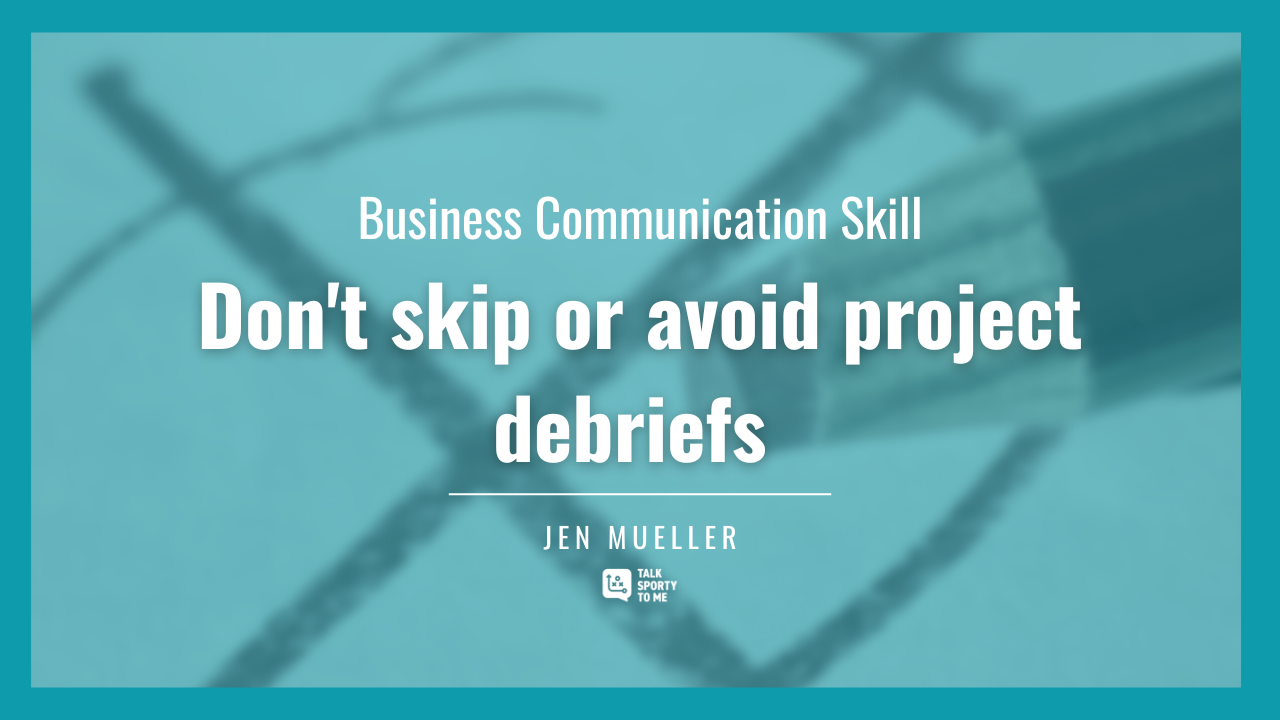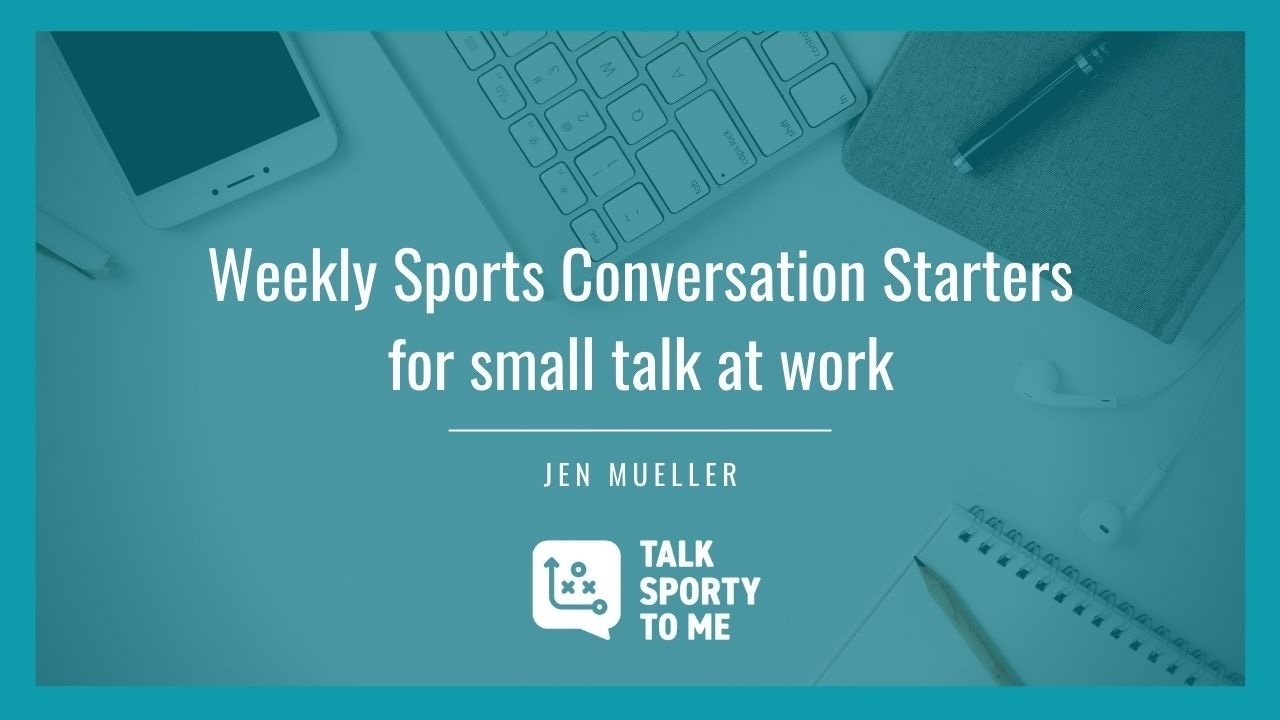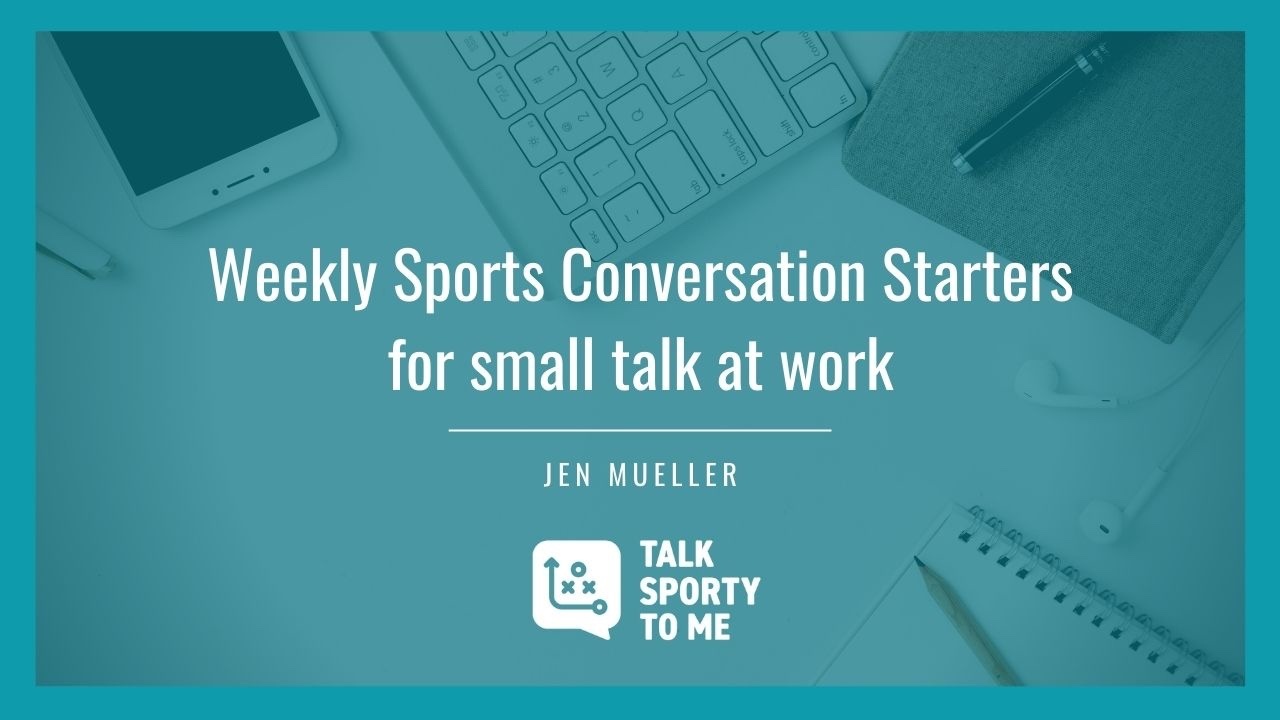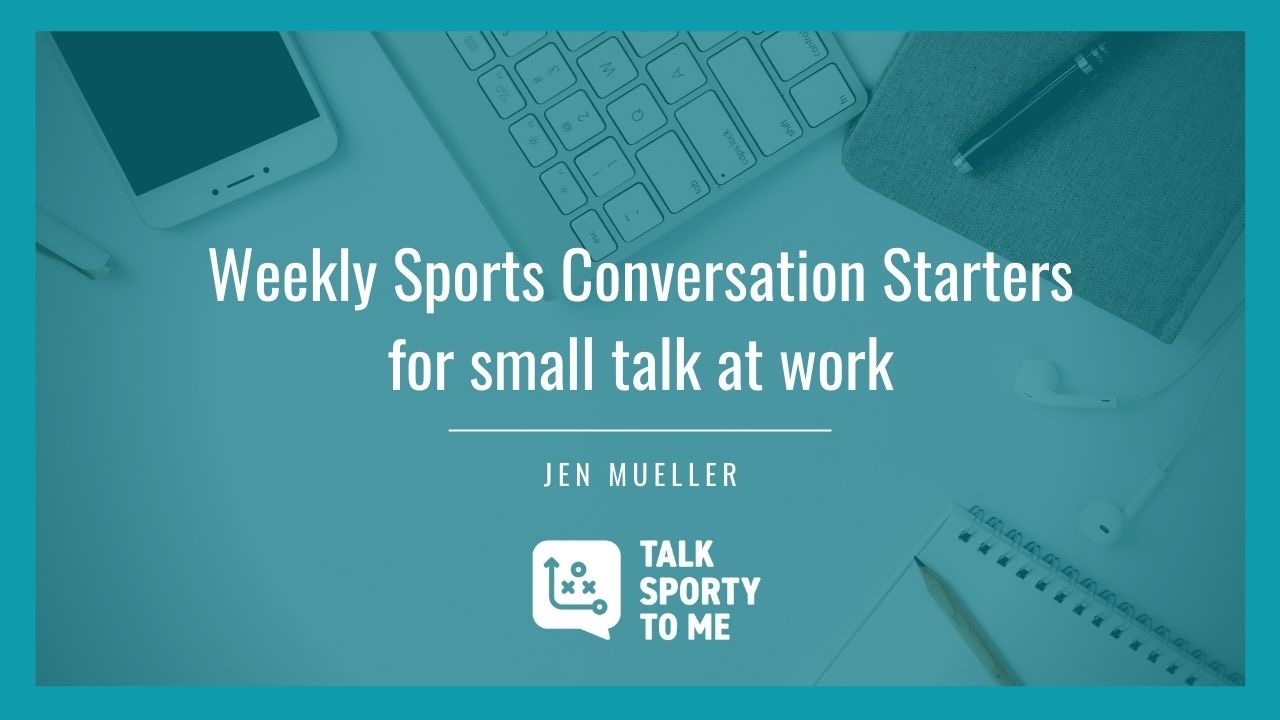You don't have to stick to sports. You can use sports small talk as a jumping off point for other conversations.
Seahawks head coach Pete Carroll did...
Timeouts, huddles, conversations in the dugout and suggestions from a caddy are all forms of feedback that happen during sporting events.
It's not j...
For as much as sports brings people together, sports fans don’t always agree. There’s a lot of fun, light-hearted, healthy debates around sports that ...
If you measure success by where you end up, you could be missing out on what you actually gained.
Think about it this in terms of your performanc...
Talking sports is my job. I love looking at the matchups, stats and storylines. I also love how often sports intersects and corresponds to business si...
If the last thing you want to do after finishing a project is a debrief, I get it.
I’m not particularly fond of re-watching past TV shows/segments I’...
I often mention that more than half of all Americans identify as sports fans. The World Cup helps highlight the magnitude of sports on a global scale ...
There is a difference between saying "I was wrong" and "I'm sorry." Both are important, but you don't necessarily need to apologize if you guessed wro...
Travel. See the world. Use sports to connect.
Okay, I’ll admit I’m a little biased and still riding the high of being in Germany with the Seahawks. I...
Could you imagine having a performance review every week?
Or having to talk about every outcome (good and bad) your team produced in a week?
Even wo...
I’ve spent a lot of time texting with family members the last couple days about the World Series and the Houston Astros. I grew up in Houston. We went...
No tricks only treats for sports fans Monday because it’s the second Sports Equinox of the month. That means all four major sports leagues are in acti...

















